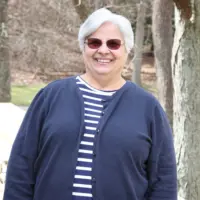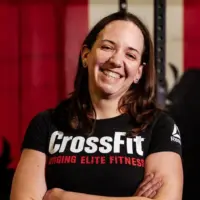About Grace Haven Ministries
This setting provides a structured and drug-free area so you can transition from completing your substance abuse treatment to independent living. The home is designed to bridge the gap between intensive substance use disorder rehabilitation and the challenges of reintegrating into everyday life. Residents must commit to maintaining sobriety and participate in house rules, including meetings. Grace Haven offers housing, advocacy, vocational experience and empowerment programs to support women during this transition.
Unlike inpatient centers, sober living homes don’t provide intensive therapy or medical care. Instead you have the opportunity to continue your outpatient treatment while using the sober living home as a base. They emphasize personal responsibility and gradual reintegration into society so you can grow and reclaim your life after addiction.
The executive director of Grace Haven has been a practicing nurse at the Wexner Medical Center and Children’s Hospital. She also has served at Fairfield Christian church and youth ministry and is currently a house mom in the sober living home.
Grace Haven promotes events to help raise funds for the ministry, including fun runs and chili cook-offs. For day to day ministry needs, you’ll share household responsibilities with other residents. The sober living environment is meant to foster mutual encouragement, accountability and support.
One of the key benefits is the focus on providing stability during this vulnerable time and helping you to build healthy routines and maintain employment or education while you’re continuing your recovery journey. On this journey you’ll have access to a variety of outdoor activities in Lancaster, including exploring scenic spots like Rising Park and Hocking Hills. The city also hosts annual events to celebrate the area’s agricultural roots. These nature areas and activities can be helpful outlets to destress, reflect, and develop healthy sober interests.
Latest Reviews
Rehab Score
Location
Other Forms of Payment
Medicaid is a state based program that helps lower-income individuals and families pay for healthcare. Medicaid covers addiction treatment so those enrolled can use their coverage to pay for rehab. When a program accepts Medicaid the client often pays very little or nothing out of their own pocket.
Medicare is a federal program that provides health insurance for those 65 and older. It also serves people under 65 with chronic and disabling health challenges. To use Medicare for addiction treatment you need to find a program that accepts Medicare and is in network with your plan. Out of pocket costs and preauthorization requirements vary, so always check with your provider.
Self-pay involves paying for treatment out of your own pocket. You can use savings or credit, get a personal loan, or receive help from family and friends to fund your treatment. If you don't have insurance or your insurance plan doesn't cover a specific program, self-pay can help ensure you still get the care you need.
Addiction Treatments
Levels of Care
Residential treatment programs are those that offer housing and meals in addition to substance abuse treatment. Rehab facilities that offer residential treatment allow patients to focus solely on recovery, in an environment totally separate from their lives. Some rehab centers specialize in short-term residential treatment (a few days to a week or two), while others solely provide treatment on a long-term basis (several weeks to months). Some offer both, and tailor treatment to the patient's individual requirements.
12-step programs are addiction recovery models based on Alcoholics Anonymous (AA). A number of substance abuse programs (including some drug and alcohol rehab centers) use the 12 steps as a basis for treatment. Beginning steps involve admitting powerlessness over the addiction and creating a spiritual basis for recovery. Middle steps including making direct amends to those who've been hurt by the addiction, and the final step is to assist others in addiction recovery in the same way. 12-Step offshoots including Narcotics Anonymous (NA), Cocaine Anonymous (CA), Dual Recovery Anonymous (DRA), Sex and Love Addicts Anonymous (SLAA) and Gamblers Anonymous (GA).
Treatments
A combined mental health and substance abuse rehab has the staff and resources available to handle individuals with both mental health and substance abuse issues. It can be challenging to determine where a specific symptom stems from (a mental health issue or an issue related to substance abuse), so mental health and substance abuse professionals are helpful in detangling symptoms and keeping treatment on track.
An alcohol use disorder (AUD), also commonly called alcoholism, can range from mild to severe. It involves compulsive consumption of alcohol and maladaptive patterns of drinking that lead to negative physical, social, and relational consequences. Diverse treatment programs are available for people with AUD. Mutual-support groups, medications, and behavioral treatments are provided through alcohol rehab in Ohio. If co-occurring disorders are present, it is important to receive treatment for both disorders.
Drug rehab in Ohio provides comprehensive treatment to address the physical and psychological needs of those struggling with substance use disorders. This may involve inpatient and/or outpatient care.
Programs
Adult rehab programs include therapies tailored to each client's specific needs, goals, and recovery progress. They are tailored to the specific challenges adult clients may face, including family and work pressures and commitments. From inpatient and residential treatment to various levels of outpatient services, there are many options available. Some facilities also help adults work through co-occurring conditions, like anxiety, that can accompany addiction.
Rehabs for women provide a safe, nurturing space for female clients to heal. These treatment programs consider the specific obstacles that women can face during recovery and place a special emphasis on mental, social, physical, and reproductive health. They explore how each woman's experience has shaped the trajectory of their substance use, addressing issues such as sexual abuse and past trauma.
Clinical Services
Group therapy is any therapeutic work that happens in a group (not one-on-one). There are a number of different group therapy modalities, including support groups, experiential therapy, psycho-education, and more. Group therapy involves treatment as well as processing interaction between group members.
In individual therapy, a patient meets one-on-one with a trained psychologist or counselor. Therapy is a pivotal part of effective substance abuse treatment, as it often covers root causes of addiction, including challenges faced by the patient in their social, family, and work/school life.
Amenities
-
Residential Setting
-
Private Rooms
Staff

Mary Ann Hess
Executive Director

Jackie Hardman
Secretary

Sue Schmitz
Board Member

Chrissy (Christina) Kittle
Treasurer
Contact Information
PO Box 2345
lancaster
Lancaster, OH 43130
